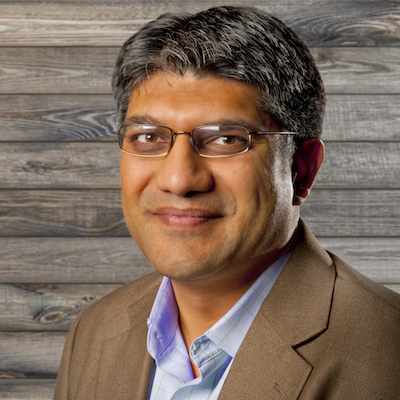This is part II of our run-down of the recent Jigar Shah interview. View the full interview here.
Let’s just pretend
So let’s pretend we’re getting the ear of some local government officials and landowners in the Midwest, suggests Tim Montague, host of Solar Podcast. What do you say to them, Jigar Shah? “Should we build all of the solar power in the desert Southwest, then transmit it to Chicago via transmission lines? Or we could actually put people to work here in the Midwest,” says Jigar. “And we don’t have to use productive farmland. This isn’t a land issue. It’s a planning issue,” he insists.
“For a lot of rural counties, we can actually replace their entire tax base with property tax payments from the renewable energy sector, if they want to be part of the planning process,” according to Jigar.
In what smoky back rooms is planning happening?
“The smoky back room has been Twitter the past four years,” says Jigar. “It’s happening right in front of people. They’re just not plugged into the right Twitter group. Look at what the Energy Foundation is doing, and the Environmental Law and Policy Center, and all the great organizations in the Midwest. These people are not hard to find.”
What about the nuts and bolts of moving a project forward?
“If you have a landowner or group owning substantial acreage, say 10,000 acres, that gets the attention of renewable energy developers,” says Tim. It simplifies their process. But if you’re a local AHJ (Authority Having Jurisdiction), how do you frame this to your constituents? “You guys all have a D-minus for infrastructure.” That’s how the American Civil Engineering Society frames it, according to Jigar. That local AHJ needs a lot of things: a working wastewater treatment plan, replacing lead pipes, etc., all technologically possible. What is needed, Jigar doubles down, is “a government willing to invest the dollars into the planning. Remember, we don’t need a lot of money from the federal government anymore; most of these technologies are cost-effective at this point. What we need is leadership and planning.”
Positive Disruption
We’re talking about disruption. “The organizations must transform, must disrupt themselves from within, or they will be disrupted from without,” Tim suggests, like what Elon Musk is doing in the auto industry. And we know electrifying transportation requires more juice on the grid – more clean juice for the larger energy transformation. “We need to triple the grid once we electrify transportation,” says Montague. No matter where you are in the economy, you stand to win. If you’re a local government, you can win. If you’re the mayor of a small Midwest city, you can find ways to tap into this opportunity.
For a lot of local officials, however, the challenge is information. “They don’t want to get their source of truth from you,” says Tim. They want it from the Department of Energy, from the USDA, from their local government. “They’re saying, well, this stuff might be coming. It might be better, but we’re not sure yet.” They don’t see the data as clear. “This new administration is going to say the data is crystal clear,” says Tim. “This stuff is better in every single way. It’s cheaper, it’s better for you. It creates more local jobs and it has lower operating costs over time. And it produces more local income. So that’s where we are.”
This complete interview and others can be viewed at the Solar Podcast, brought to you by Tim Montague and Continental Energy Solutions.
About Jigar Shah
Jigar Shah is the Co-Founder of Generate Capital, an investment and operating platform that builds, owns, operates, and finances infrastructure assets involving the world’s critical resources: energy, water, agriculture and basic materials. Generate’s team has decades of collective experience financing billions of dollars of sustainable infrastructure. Every week you can catch him on Greentech Media’s “Energy Gang” podcast.
Jigar Shah is best known as the Founder of SunEdison, where he pioneered “no money down solar” and unlocked a multi-billion-dollar solar market, creating the largest solar services company worldwide.
In 2009, Jigar joined Richard Branson to be the first CEO of the Carbon War Room, a global non-profit commitment to supporting global entrepreneurs scale their climate solutions. Based on that experience, he authored Creating Climate Wealth: Unlocking the Impact Economy.
